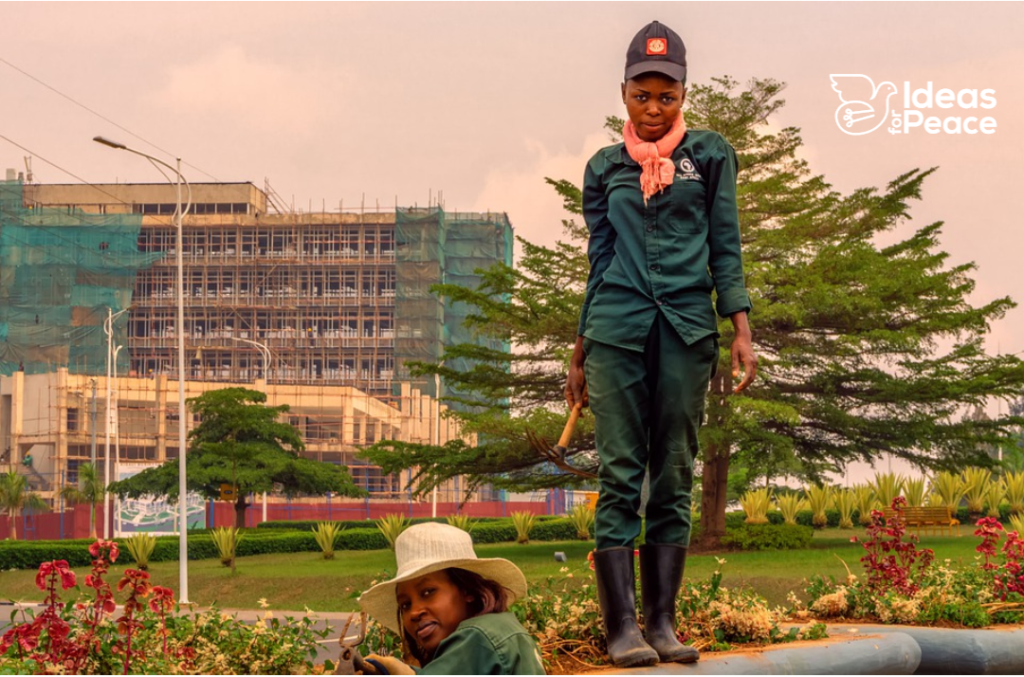Como las Disparidades de Género durante el Genocidio de Ruanda Trasformaron Derechos Humanos Regionales

The Rwandan Genocide led to positive changes in Rwandan governance and regional human rights mechanisms, especially on women’s rights.
Conflict and resolution in Rwanda
Alphonse Nshimiyimana describes his work in his home country of Rwanda at the Center for Conflict Management funded largely by UNDP and where, understandably, there is much to be done.
I have been to Nyamata
The author wrote this poem on her return from Nyamata, Rwanda where 2,500 people had been slaughtered in 1994 to her home in Zimbabwe(June 2000).
Pictured above is the church where the genocide was perpetrated.
Remembering Rwanda
Remembering Rwanda Author: Ross Ryan Originally Published at Peace and Conflict Monitor on: 04/09/2009 Category: Editorial Rwanda is a small country, but it occupies a central place in the discourse of peace and conflict studies, illustrating the full range of the human capacity for violence, as well as forgiveness and reconciliation. The events surrounding the […]
Sometimes in April: When one fails, we all fail
Elliot Waring reviews the 2005 film Sometimes in April, written and directed by Raoul Peck.
Waring writes: “What is contained within this “review” is
a brief summary of the film and some of the questions which jump off the screen
as you watch. Other than that, this reviewer can only say, watch this film.
Watch this film and let it be a lesson to you to never forsake your fellow man,
to never let humanity fail on such an epic scale again, to never sit idly by
while atrocities are played out in front of you. Allowing violence and pain to
pass by you unquestioned is an act of violence in and of itself.”
Memory and denial: The Rwandan genocide fifteen years on
While most of
the world is familiar with Rwandan genocide, fifteen years later the influence
of a small band of deniers is growing thanks to the embrace of the deniers’
arguments by a small but influential number of left-wing, anti-American
journals and websites, cautions Gerald Caplan.
This article is cross posted from Pambazuka News
Overcoming blanket immunity in national constitutions: Cameroon and the principle of universal jurisdiction
Overcoming blanket immunity in national constitutions: Cameroon and the principle of universal jurisdiction Author: Eric NGONJI NJUNGWE Originally Published at Peace and Conflict Monitor on: 12/05/2008 Category: Analysis II 1. Introduction The adoption by the United Nations (UN) General Assembly of the Universal Declaration of Human Rights (UDHR) on 10 December 1948[1] has been pivotal […]
Peacekeping and the New World Order
The collapse and disintegration of the Soviet Union fundamentally altered the structure of international relations and the expression of violent conflict. Where war was once considered the business of nation states, non-state actors and intrastate wars have come to the forefront of global security concerns. Givi Amiranashvili analyses the legal and political aspects of UN peacekeeping operations in this new geopolitical landscape.
Some Similarities Between the Armenian Genocide, 1915-1923, and the 1994 Genocide in Rwanda
The twentieth century witnessed systematic, state-sponsored killings of specific ethnic, nationalist, or religious groups across continents and cultures. Much can be learned from the individual ideologies of hate and insecurity that led to each genocide, but as Habyarimana argues, they also share significant similarities. Ultimately, genocide is not a problem that belongs to specific times and places, but a problem for all mankind. We all have a responsibility to understand what has happened, and build a future where such atrocities are an impossibility.
Machete Season
Why individuals willingly participated in the Rwanda Genocide is a question that has been widely asked and widely begged by multiple books on the subject. Consisting of transcribed interviews with ten different perpetrators of the genocide, Machete Season still only brushes the heart of the matter: that “why” that historians of such atrocities will always ask themselves.
